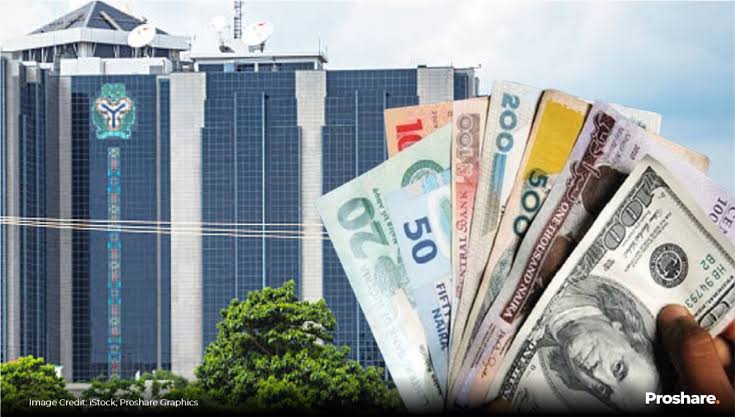The Central Bank of Nigeria (CBN) has unveiled fresh guidelines for interbank foreign exchange (FX) trading through its Electronic Foreign Exchange Matching System (EFEMS), effective November 25, 2024.
The directive, signed by Dr. Omolara Duke, Director of the Financial Markets Department, seeks to enhance market transparency, improve trading efficiency, and ensure compliance within Nigeria’s FX market.
Key Provisions of the Guidelines
Minimum Trade Value And Incremental Clip Sizes
The guidelines mandate a minimum trade value of $100,000 for all interbank FX transactions. Participants must also adhere to incremental clip sizes of $50,000, aimed at standardizing trade sizes and minimizing counterparty risks.
Tekedia Mini-MBA edition 16 (Feb 10 – May 3, 2025) opens registrations; register today for early bird discounts.
Platform And Trading Hours
The CBN has designated Bloomberg’s BMatch as the official order-matching platform for FX transactions. Trading hours will run from 9:00 AM to 4:00 PM West Africa Time (WAT) on business days.
Scope Of Transactions
Initially, EFEMS will only support spot FX transactions between the Nigerian naira (NGN) and the US dollar (USD). However, the CBN reserves the right to introduce additional currency pairs if necessary.
Binding Trades And Compliance
All trades executed on the EFEMS platform are binding, except when canceled by mutual agreement of both parties with prior written approval from the CBN. Participants are required to:
1.Set Credit and Settlement Limits: Counterparty credit and settlement limits must be predefined. Transactions exceeding these limits will not be executed.
2.Adhere to Regulations: Participants must comply with the Nigerian Foreign Exchange Code and other relevant CBN regulations.
3.Report and Log Transactions: Transactions outside prescribed parameters or exceeding limits must be reported and logged on the FX blotter within 10 minutes.
Trades on EFEMS will remain anonymous until matched. Counterparty details will only be disclosed post-transaction in line with settlement protocols.
Participation Criteria and Withdrawal Rules
Eligibility
Participation is restricted to authorized dealer banks licensed by the CBN. Other financial institutions must obtain the CBN’s prior approval to join the platform.
Participants are required to:
Execute agreements with the CBN-approved platform provider.
Maintain accurate profiles.
Operate within prescribed credit and settlement limits.
Participants wishing to exit the platform must submit a 30-day notice and resolve all outstanding obligations before withdrawal.
The CBN has emphasized strict monitoring of all EFEMS trades to ensure compliance and market integrity. Daily reporting of trade volumes, settlement statuses, and counterparties is mandatory.
Non-compliance with the guidelines may result in severe penalties, including the possible publication of aggregate or individual trade data for market analysis, subject to confidentiality agreements.
Bloomberg BMatch Platform to Launch on December 2, 2024
The CBN has confirmed that the Bloomberg BMatch system will officially go live on December 2, 2024. This platform is expected to enhance operational efficiency and transparency in the FX market, allowing seamless trading among participants and improving the CBN’s oversight capabilities.
The CBN has urged all authorized dealers and banks to collaborate with Bloomberg representatives to ensure a smooth onboarding process and resolve technical challenges.
Implications for Nigeria’s FX Market
The introduction of EFEMS and the associated guidelines mark a significant step towards modernizing Nigeria’s FX market. By enforcing standardized trading practices and leveraging advanced technology through Bloomberg’s BMatch, the CBN aims to create a more transparent and orderly market.
However, the mandatory $100,000 minimum trade size may restrict participation, potentially excluding smaller players from interbank FX trading. While the move aligns with global standards, market participants will need to adapt to the stringent compliance requirements.
These changes reflect the CBN’s broader strategy to stabilize the FX market amid ongoing economic challenges. The central bank aims to restore confidence and improve the overall efficiency of Nigeria’s FX ecosystem by streamlining trading processes and enhancing oversight.


